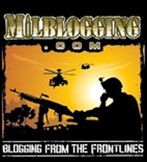I was reading Will Richardson’s article Get. Off. Paper. where he talks about people’s dependence on paper, and the reluctance to let go of owning information in hard copy. I’ve also just read what Joi Ito, CEO of Creative Commons, has to say about sharing photos of ourselves. It’s made me reflect on the nature of owning and sharing information, and how that has changed dramatically in the last few years.
When I was at school and university, information was power. If you wanted to be successful and get good marks, you needed information.
I remember how scarce information was. I had to work hard to get it, and I had to work hard to get it before others did, or get it from places others wouldn’t know about.
Sound strange? Think about it. An assignment is set, and the class goes to the library, but there are only a few books about the single subject that needs researching. Once I was jumped from behind by another student who clawed me until I dropped the book she wanted. Sound unbelievable? Believe it; it’s true. That experience shocked me and I’m not about to forget it. I’ve wondered since then, how important is this information, that someone would behave in such a manner? Admittedly, this is extreme behaviour, but think about this. In those days, my assignments were based on the location of content. If I owned that content, I would regurgitate it and present it attractively. Would I be in a hurry to share this information? Well, that would mean that someone else would have the same information as me. Why would I share it? Did we ever do anything with that information? Analyse it, evaluate it, modify it, create from it? No. That information was what my mark was based on.
Will Richardson talks about a paperless society. What I remember most about university, was the time I spent photocopying chapers in the library. Not complete chapters, of course, just the legal percentage of what was permissable. I focussed on collecting bags full of coins so that I would be able to photocopy pages from all the books I’d found that were even remotely relevant to my topics of study. I needed those copies, I felt empowered with all that paper, all that information that I may need during my research. When I was finished, I kept that paper. I couldn’t bring myself to throw it out. I might need it. I think I still have it.
It’s a relief but also kind of strange to be functioning now in the potentially almost paperless world. I turn to people for my links to information, and I share freely, as well as receive in abundance. My networks are not mean. They are made of people who are smart, connected, varied, informed, interesting and willing to share ideas and knowledge. I’m happy that I’m still learning so that I can turn my back on the old ways.



